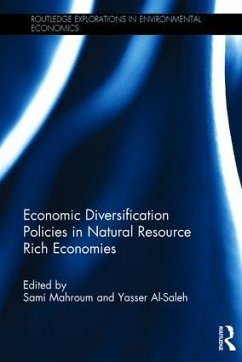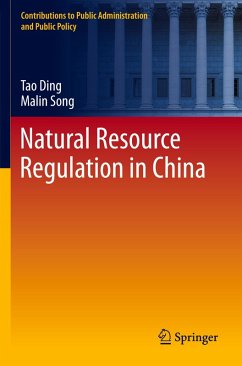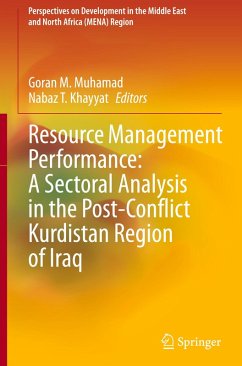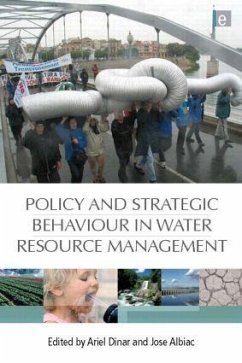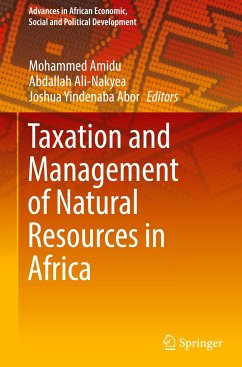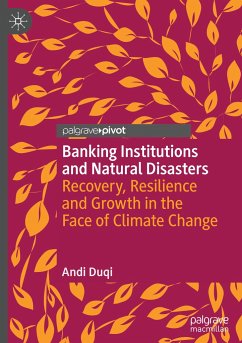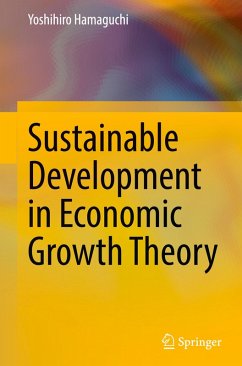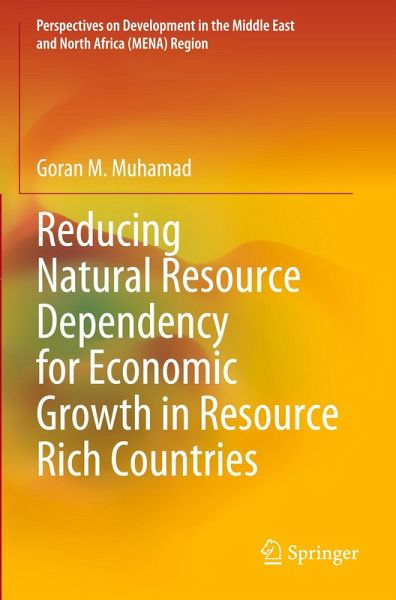
Reducing Natural Resource Dependency for Economic Growth in Resource Rich Countries
Versandkostenfrei!
Versandfertig in 6-10 Tagen
97,99 €
inkl. MwSt.
Weitere Ausgaben:

PAYBACK Punkte
49 °P sammeln!
This book examines the reduction of natural resource revenue dependency in resource-rich countries. Such countries experience lower economic growth due to factors of high volatility in commodity prices, reduction in accountability, undermining of the competitiveness of other economic sectors, and weak power of institutions. The analysis is based on an identified gap in the literature regarding how private sector development and public sector development affect the degree of dependency on resource revenue in natural resource-rich countries.This book studies the interaction between private and p...
This book examines the reduction of natural resource revenue dependency in resource-rich countries. Such countries experience lower economic growth due to factors of high volatility in commodity prices, reduction in accountability, undermining of the competitiveness of other economic sectors, and weak power of institutions. The analysis is based on an identified gap in the literature regarding how private sector development and public sector development affect the degree of dependency on resource revenue in natural resource-rich countries.
This book studies the interaction between private and public sector development with dependency on natural resources, specifically exploring whether the two diversified factors lead to a decrease in the degree of dependency, which is important for economic growth and to overcome the "resource curse". Economic diversification is viewed as a long-term solution to the high economic dependency from natural resources. Private sector development and public sector reforms may lead to this diversification.
The analysis of the book helps to shed light on private sector development, public services sector privatization, and a taxation system to diversify sources of income, with the objective to reduce dependency on natural resources extraction.
This book is an invaluable read for public policymakers, the public and private sectors, law makers, and scholars of developmental studies.
This book studies the interaction between private and public sector development with dependency on natural resources, specifically exploring whether the two diversified factors lead to a decrease in the degree of dependency, which is important for economic growth and to overcome the "resource curse". Economic diversification is viewed as a long-term solution to the high economic dependency from natural resources. Private sector development and public sector reforms may lead to this diversification.
The analysis of the book helps to shed light on private sector development, public services sector privatization, and a taxation system to diversify sources of income, with the objective to reduce dependency on natural resources extraction.
This book is an invaluable read for public policymakers, the public and private sectors, law makers, and scholars of developmental studies.



